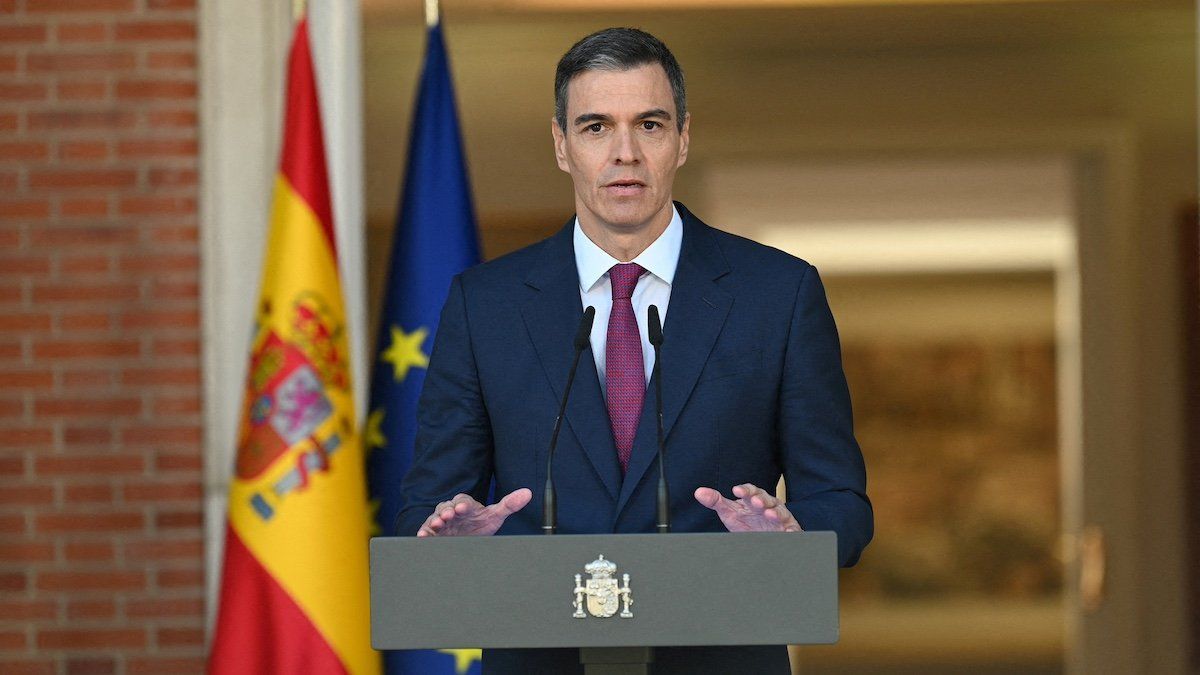After nearly a week of uncertainty, Pedro Sánchez, the Spanish prime minister, announced he would remain the country’s leader. Last Wednesday, he threatened to leave the position because of what he termed a “harassment and bullying operation” being waged against him and his wife by political and media enemies.
The move came hours after a Madrid court opened an investigation into his wife, Begoña Gómez, for influence peddling and corruption. The trial was brought by Manos Limpias, a self-styled trade union with far-right links, who accused Gómez of using her influence to secure sponsors for a university master’s degree course she runs. Madrid's public prosecutor asked Thursday that the case against her be closed.
Sánchez’s threat to resign spurred demonstrations around Spain over the weekend calling for him to stay put. More than 10,000 people gathered in front of the Socialist Party’s headquarters in Madrid in a show of support.
Sánchez attributed his decision to stay to this weekend’s mobilizations, and he has called for Spaniards to rise above “the global reactionary movement that wants to impose its retrograde agenda through defamation and falsehoods.”
